Storm Clouds Over Asia
Region Covered: East Asia (focus on Taiwan, China, Japan, Korea, Russia)
Correct as at: 20 Aug 2025
Information reliability: C2 (multiple reliable open‑source reports with some unverified social‑media details).
Assessment window: 13–20 Aug 2025 (Pacific/Auckland timezone).
Bottom Line Up Front
Taiwan carried out multi-domain defence activities and warned citizens to avoid Chinese war-anniversary events, accusing Beijing of distorting World War II history. European governments criticised China’s aggressive moves in the Taiwan Strait and South China Sea. Japan strengthened defence ties with Turkey and looked at buying armed drones. North Korea dismissed South Korean dialogue efforts as a “pipedream,” vowed to counter joint US-South Korea drills, and ordered a rapid nuclear expansion. Regional friction continues to grow, with China, Russia and North Korea aligning more closely.
Diplomacy
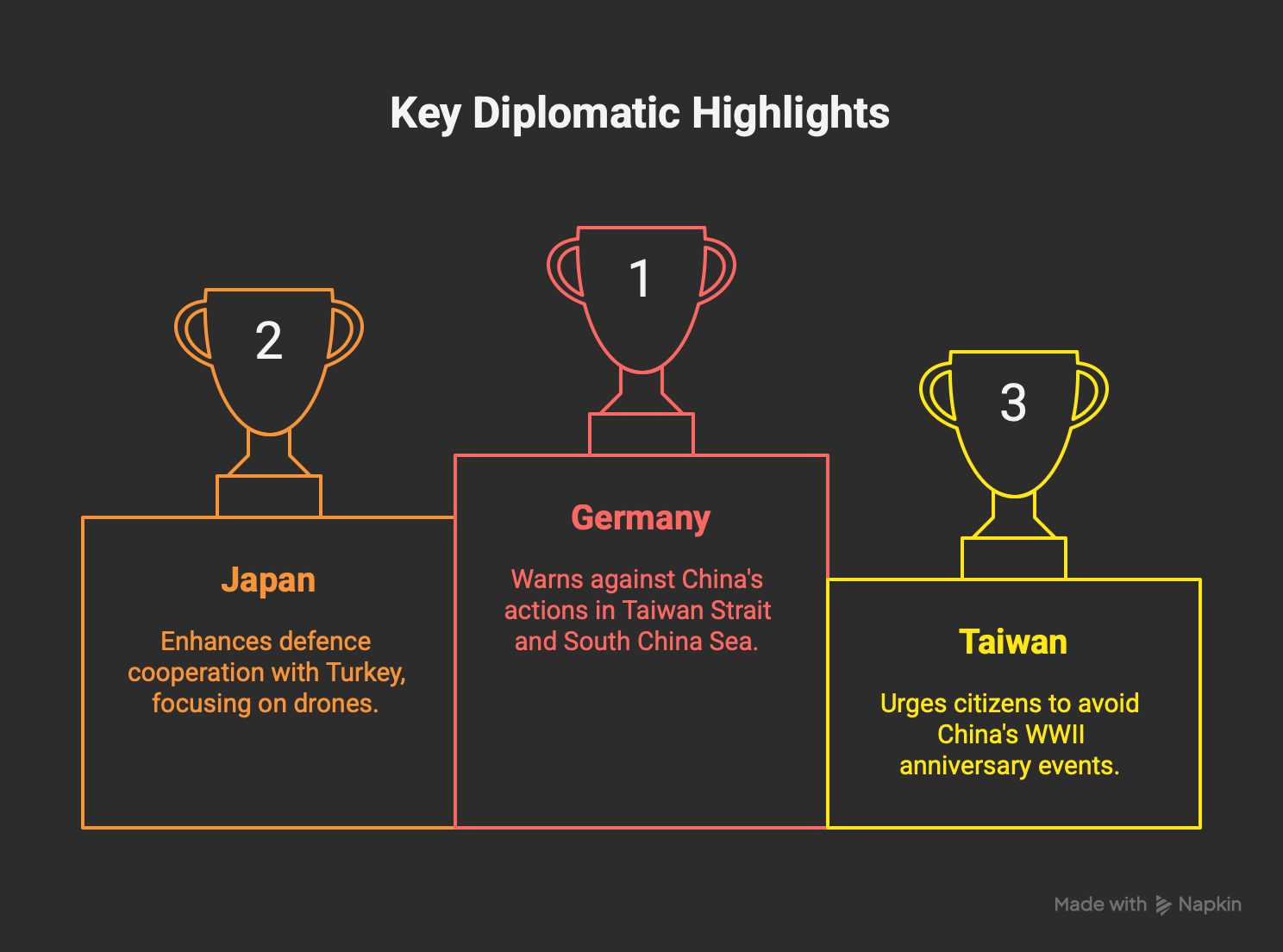
Berlin warned China’s actions threaten international norms.Germany’s Foreign Minister Johann Wadephul warned that China’s actions in the Taiwan Strait and South China Sea threaten international norms. He urged Europe to reinforce a rules-based order, pointing to Beijing’s claim of expelling a US destroyer near Scarborough Shoal. Source
Tokyo advanced defence ties with Turkey. Japan’s Defence Minister Gen Nakatani visited Turkey, the first such trip by a Japanese defence chief. Talks focused on defence-industry cooperation and possible purchases of Bayraktar drones. The visit also covered regional security and included stops in Djibouti and Jordan. Source
Taipei rejected Beijing’s WWII narrative. Taiwan’s Mainland Affairs Council minister Chiu Chui-cheng urged citizens to avoid China’s World War II anniversary events, accusing Beijing of distorting history to claim Taiwan. Officials and retired defence staff were banned from attending. President Lai called for unity and defence of democracy. Source
Moscow and Beijing pledged deeper cooperation. Russian Foreign Minister Sergey Lavrov met Chinese Foreign Minister Wang Yi in Beijing. Both praised the momentum in ties, reaffirmed the 2001 Treaty of Good-Neighbourliness, and committed to deeper partnership. Comment: details drawn from Russian government release; event occurred just before the reporting window and is included for context.
Seoul sought to restore the 2018 deal with Pyongyang. South Korean President Lee Jae Myung pushed to restore the 2018 Comprehensive Military Agreement with Pyongyang, which restricts drills and guard-post construction at the border. His government has already halted propaganda broadcasts and banned anti-North leaflets. Source
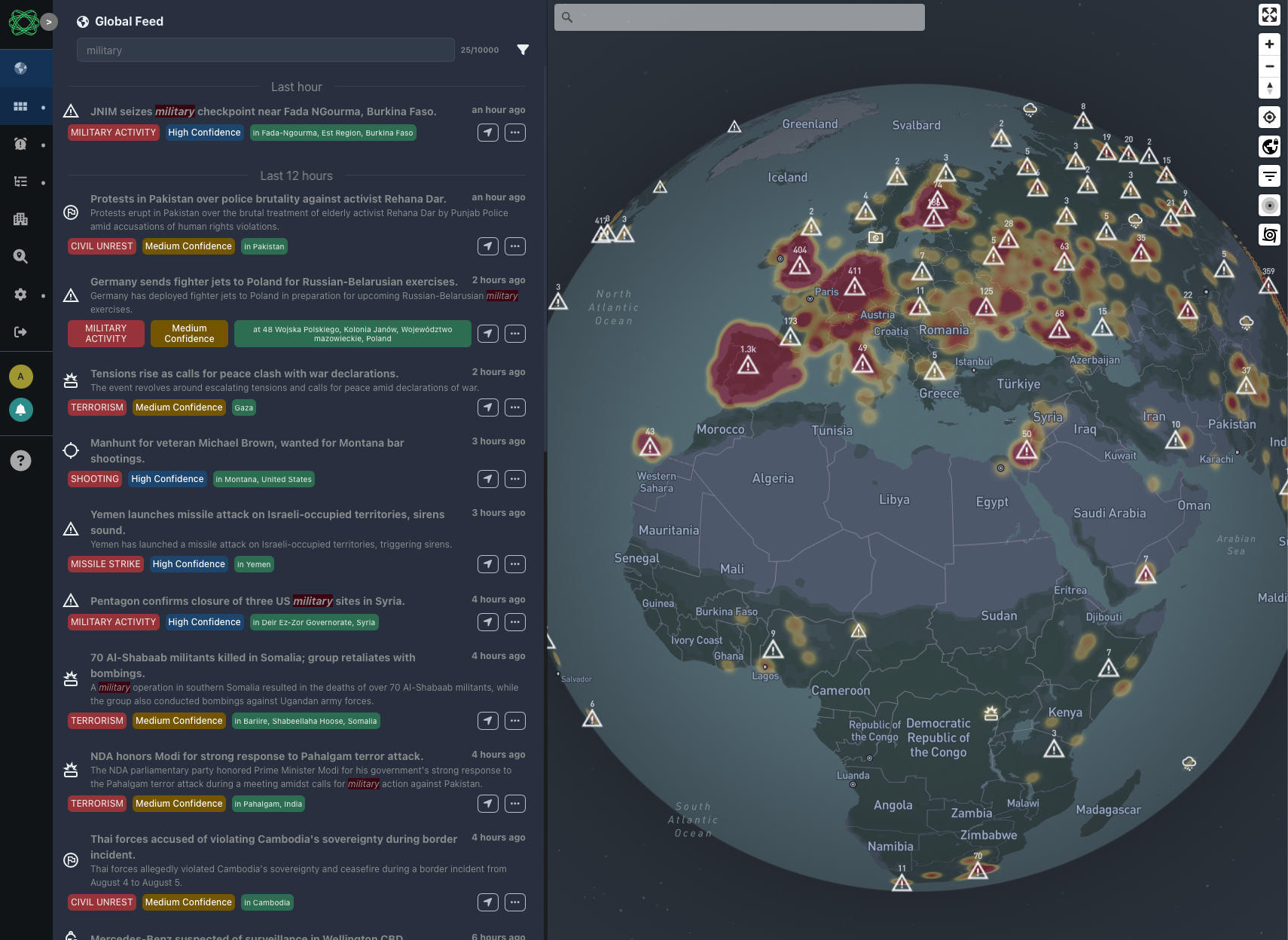
Our insights are sourced firm and foremost with the help of Global Feed - keeping us at the forefront of hotspots across the world. Check them out here: https://www.getsignal.info/indexgf
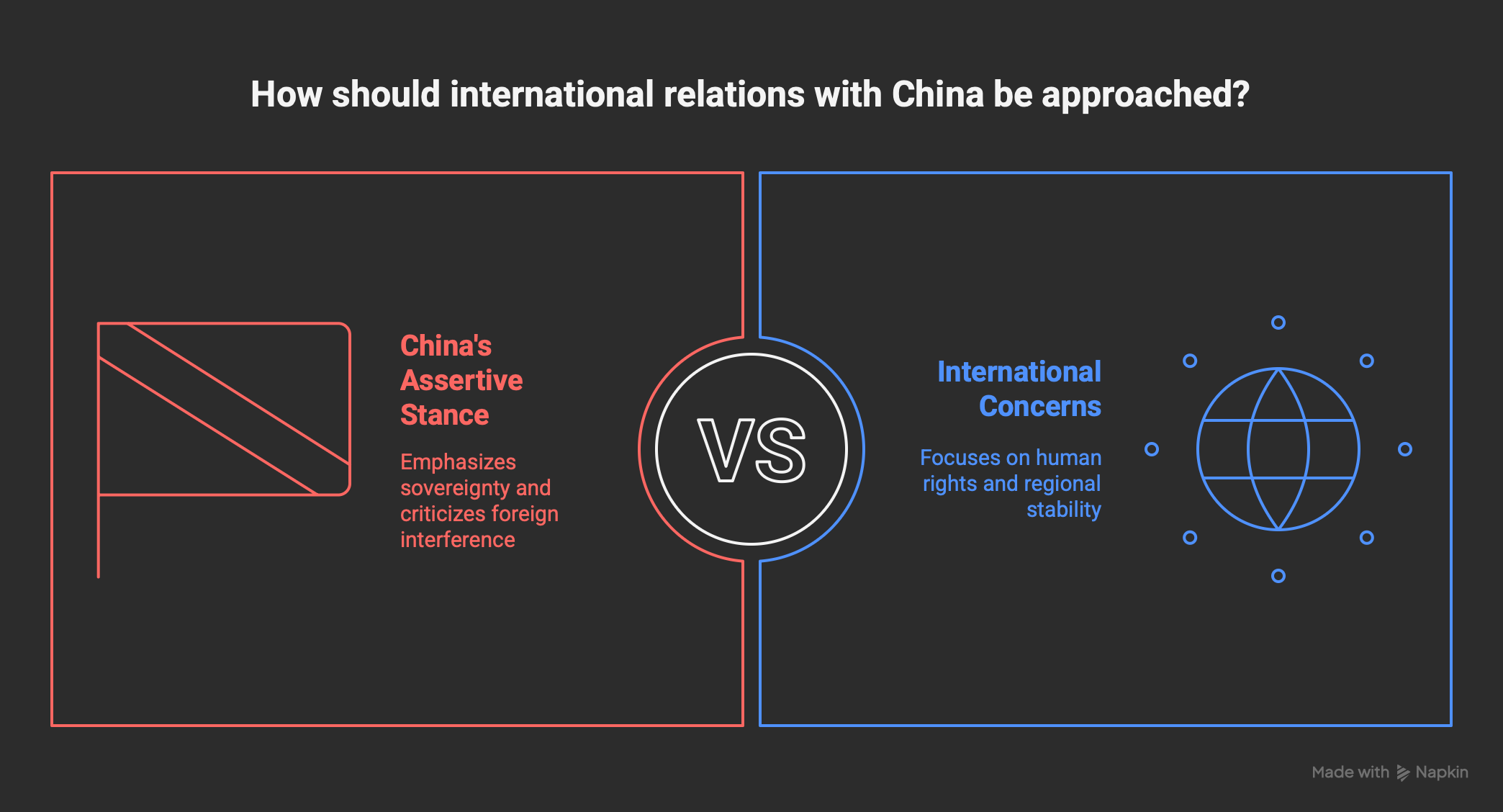
Information / Propaganda
Beijing insisted Taiwan belongs to China and rejected Western criticism. China’s Foreign Ministry repeated that Taiwan belongs to China, citing the Cairo Declaration and Potsdam Proclamation. Spokesperson Mao Ning criticised German and Western officials, demanded adherence to the one-China principle, and claimed the East and South China Seas are stable. She also framed criticism of Hong Kong and Xinjiang policies as foreign interference. Source One, Source Two
Taipei called Chinese commemorations propaganda and promoted local events.Taiwan warned that attending Chinese commemorations would strengthen Beijing’s propaganda and urged citizens to support Taiwan-led events. Source
Pyongyang rejected talks and threatened action over US-South Korea drills. Kim Yo Jong called Seoul’s outreach a “pipedream” and said North Korea had not removed anti-South loudspeakers. She ruled out talks with the United States. Defence Minister No Kwang Chol threatened counter-action against US-South Korea drills, describing them as proof of hostile intent.
China signals deterrence through propaganda and maritime challenges. Chinese state media highlighted past amphibious drills and stressed readiness against “separatists,” while the PLA Navy claimed to have expelled a US destroyer near Scarborough Shoal. These moves show Beijing’s intent to contest US freedom-of-navigation operations as part of a wider pressure campaign.
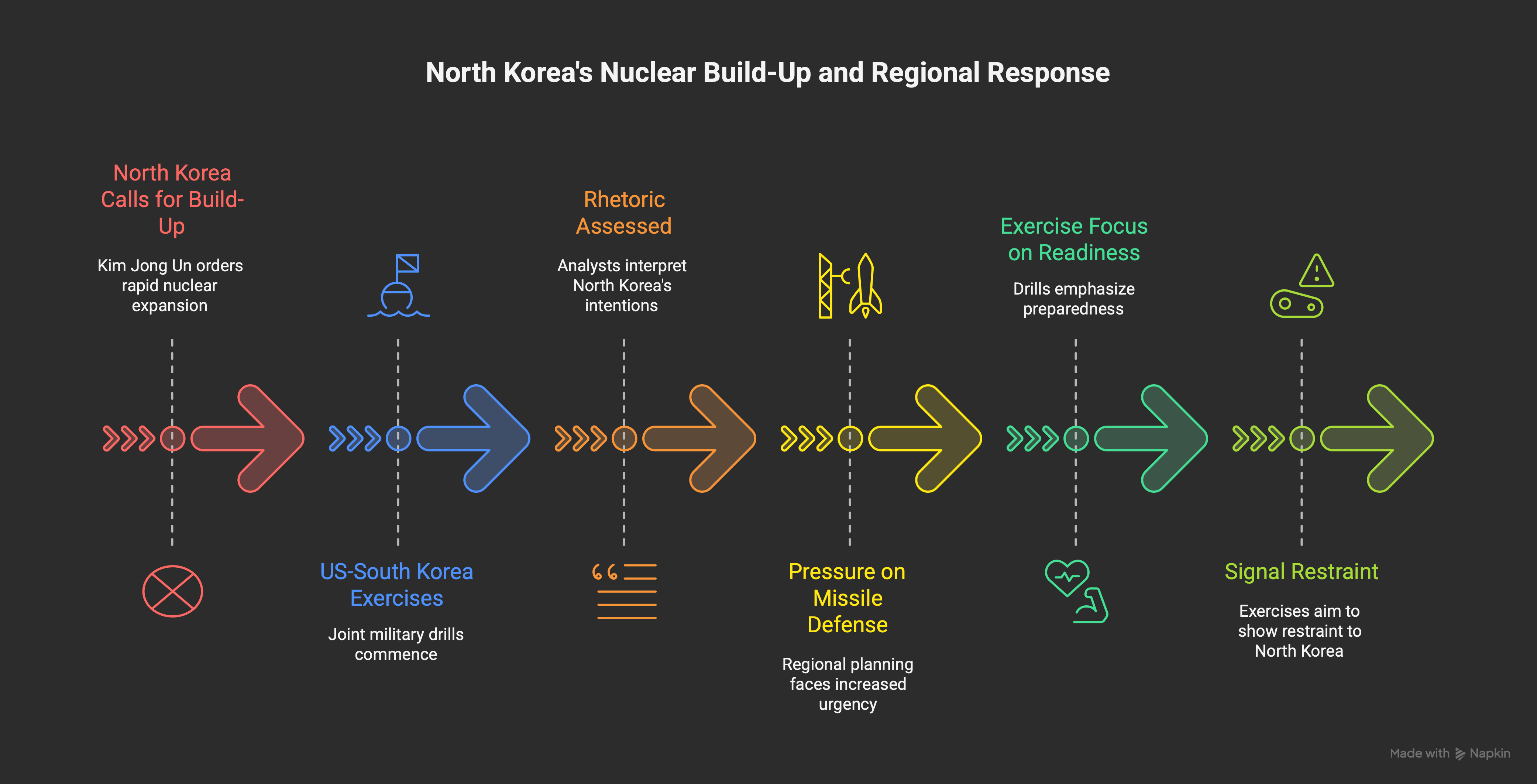
Military
North Korea called for a rapid nuclear build-up to strengthen deterrence and stall dialogue. North Korean leader Kim Jong Un ordered a “rapid expansion” of nuclear weapons production during joint US-South Korea exercises. Analysts assessed the rhetoric as evidence of Pyongyang’s determination to advance its strategic nuclear capability, heightening pressure on regional missile-defence planning. South Korea and the US launched the Ulchi Freedom Shield on 18 Aug, delaying some field training due to heat. The exercise maintained focus on readiness while signalling restraint toward Pyongyang. Source one, source two
Economic and Other Developments
Defence industry cooperation: Japan’s talks with Turkey reflect a broader trend of diversifying arms suppliers and developing autonomous weapon systems. Turkish drones have been exported widely, including to Ukraine. Japan’s interest indicates strategic hedging beyond US‑made equipment.
Sanctions & trade friction: Germany’s criticism of China noted Beijing’s continued support for Russia since the invasion of Ukraine. The statement highlights ongoing tension over China’s neutrality claims and may influence EU trade policy.
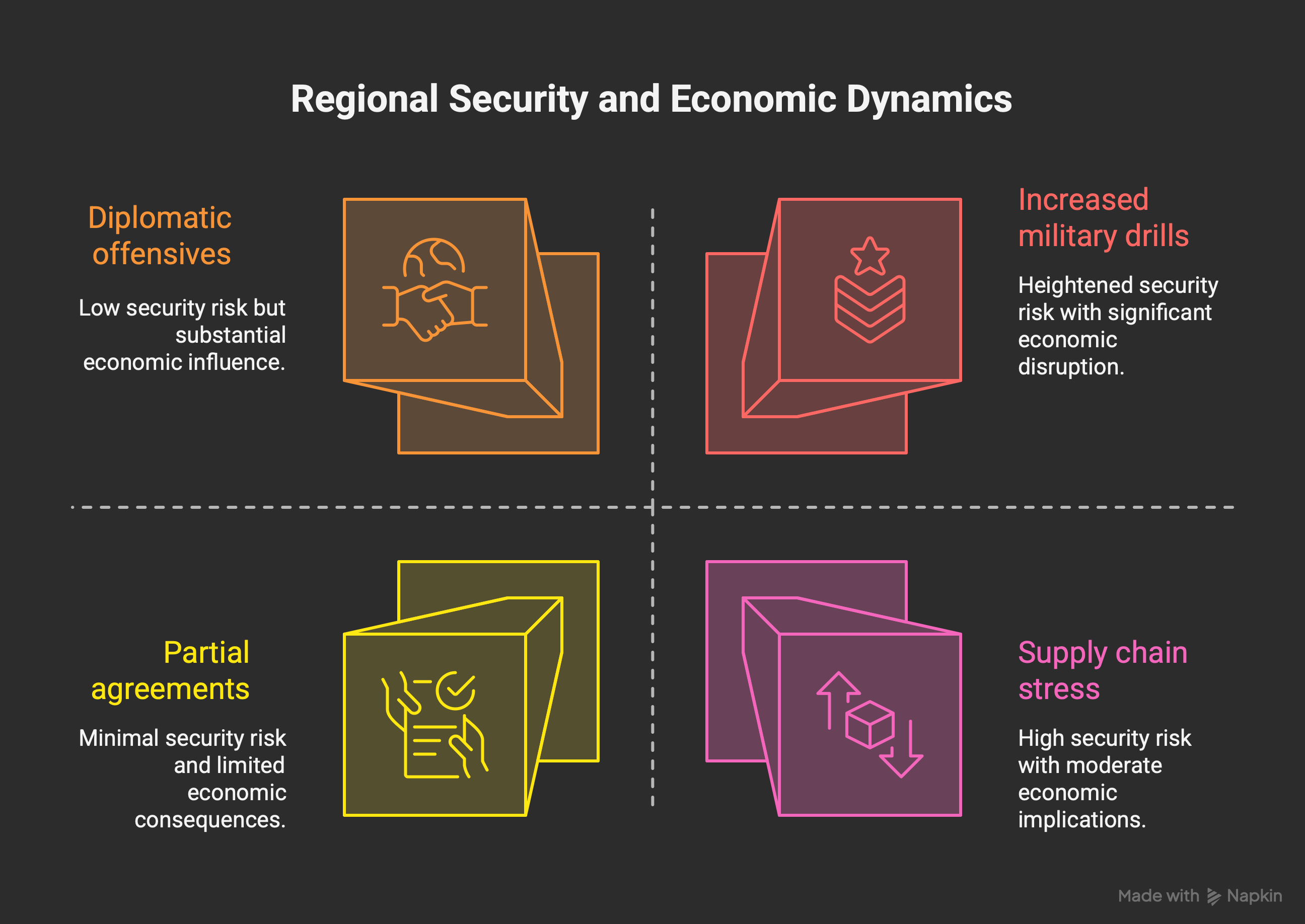
Short Term Outlook
Expect sustained pressure on Taiwan and renewed North Korean provocations. China will keep up its diplomatic offensive, while Pyongyang is likely to pair threats with missile tests. US allies are balancing deterrence with risk-reduction through new capabilities and partial agreements. The region faces more drills, sharper information warfare, and intensified diplomacy in the lead-up to elections and summits. Expect more volatility in trade routes, energy markets, and regional investment flows. Rising military drills and nuclear rhetoric raise the risk of sudden disruption, especially around Taiwan and the Korean Peninsula. Businesses and the public should prepare for supply chain stress, sharper information campaigns, and policy shifts tied to elections and summits.
What’s the biggest risk you see in the region right now? Comment below!

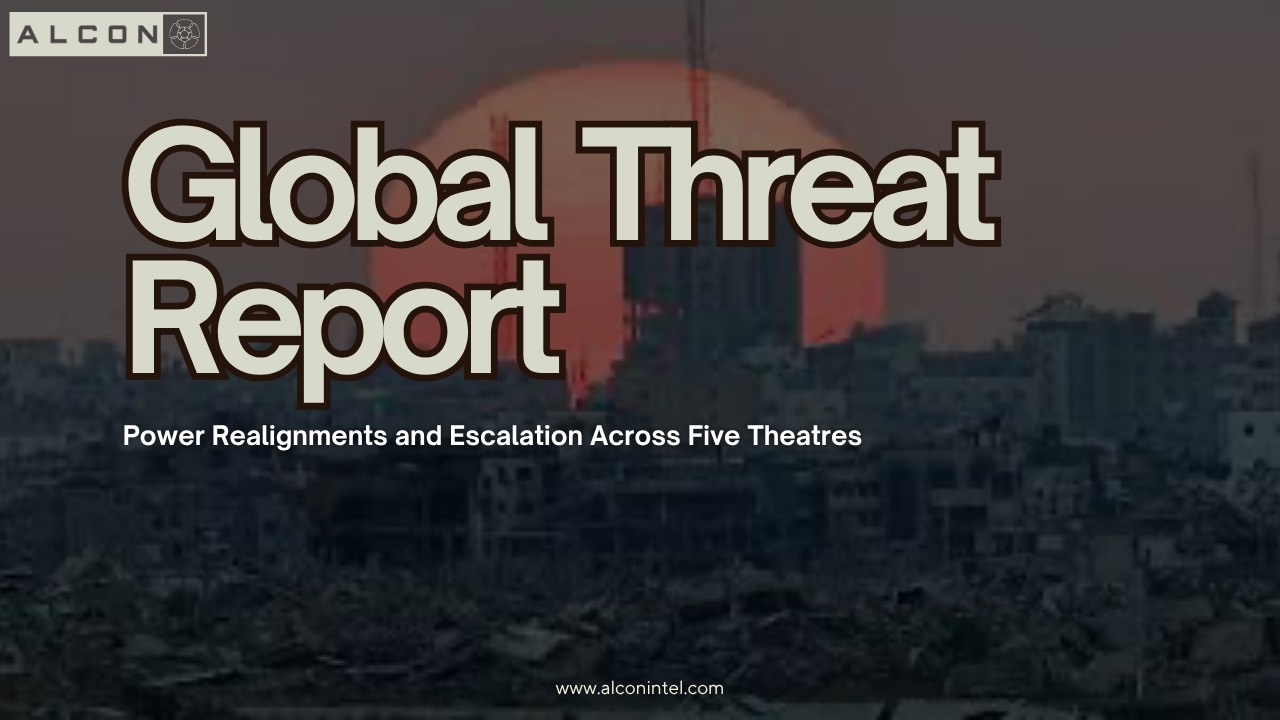
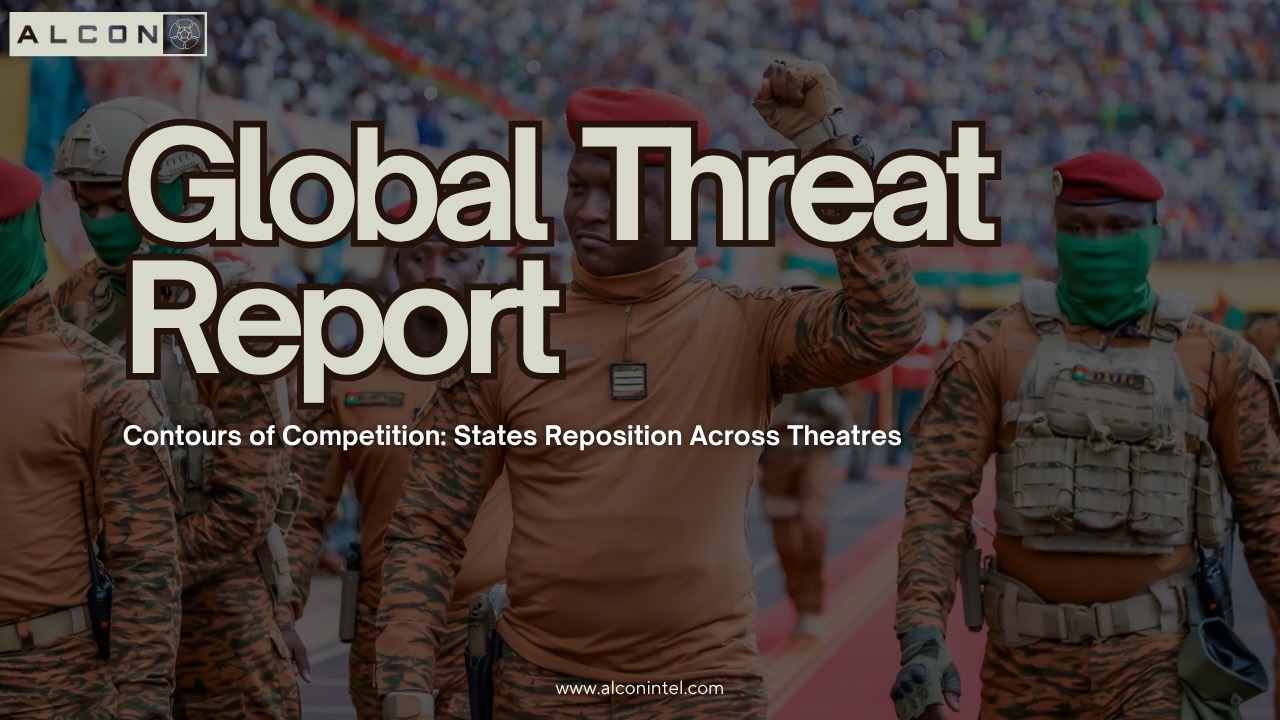
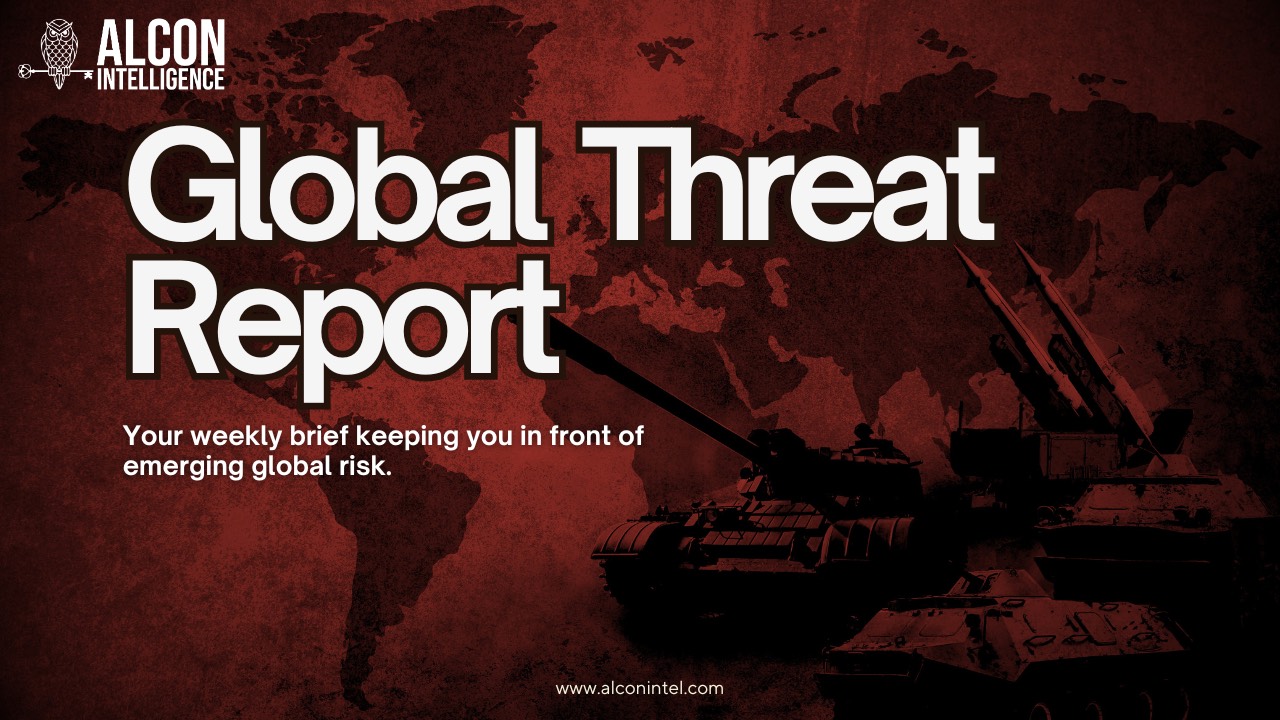

Responses